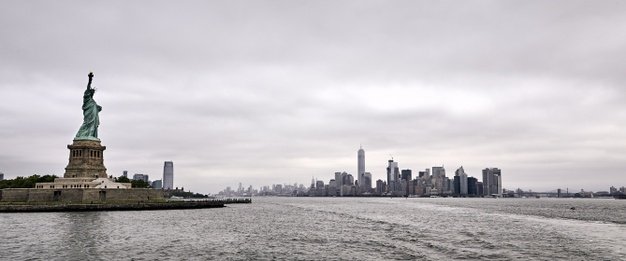John Locke, a British Enlightenment figure of the late 17th century, is credited with some of our Founding Father’s foundational thinking. In Locke’s time, European monarchs were thought to be God’s appointed representatives on earth, and therefore weren’t accountable to earthly authority. Among other things, monarchs made the rules, changed those rules on a whim, waged war, and imprisoned or killed dissenters. They ruled as they pleased, even though a monarch’s sole responsibility to his subjects was to protect them.
Locke’s ideas were radical in his day. He rejected monarchs’ divine origins, writing in his Two Treatises of Government volumes (1698) that every man was endowed by our Creator with inalienable rights that governments are responsible to protect, including “life, liberty and the pursuit of estate.” Power flows from the consent of the governed, not the other way around.
Sound familiar?
As an aside, the reason Jefferson changed Locke’s final word from “pursuit of estate” to “pursuit of happiness” is because the former, in Locke’s writings, referred to property, which was controversial amongst the revolutionaries framing the Declaration of Independence, since that term included slaves. Jefferson’s vision of happiness was the pursuit of wealth.
The idea of ordinary citizens having property rights is a notion we take for granted today but was not a historical western norm until sometime in the past 350 years. Until then, the king had the absolute authority to appropriate other people’s property. English scientist and philosopher Thomas Hobbes (1588-1679) wrote of a social contract theory in his seminal work, Leviathan, where citizens abdicate themselves to a sovereign who, through twelve principal rights governing every aspect of their lives, protects them.
Locke, in contrast, saw that private property rights were essential to a free society.
Therefore, private ownership of investments, properties, and wealth (around which I’ve based my estate planning career) is a modern phenomenon. These concepts spawned the freedoms resulting in exponential human progress that otherwise couldn’t have been possible.
Yet a free society requires something more than property rights.
Edmund Burke, an 18th century Anglo-Irish statesman and philosopher said, “Men are qualified for civil liberty, in exact proportion to their disposition to put moral chains upon their appetites.”
Society depends on a system of restraints, and these can be imposed from the outside by enforcers like the police, or from within, in the form of conscience. The less law is internalized as conscience, the more society – if it is to avoid anarchy – will resemble a police state. Burke noted in Reflections on the Revolution in France (1790), “it is ordained in the eternal constitution of things that men of intemperate minds cannot be free. Their passions form their fetters.”
Which leads me to the conflict between liberty and license. Liberty meaning freedom bound by widely accepted moral constraints, while license refers to freedom without responsibility.
In a free society, man has the liberty to do as he pleases, yet there are expectations of self-restraint. We recognize responsibilities toward other members of society. Freedom without restraint, when individuals feel no such responsibility to others, when one only considers one’s rights without regard to how the exercise of those rights affects others, results in anarchy.
An example of this can be found in the traffic stoplight. There are not enough police to monitor drivers’ adherence to the requirement that one stops one’s vehicle when that light is illuminated red. When you approach an intersection at 45 mph and the light is green, you rely on the conscience of other drivers not to run their red light so that you may proceed to your destination unharmed. If enough drivers feel the license to do as they please, when no one stops when the light is red, danger ensues. The societal norm breaks down.
When societal norms break down, as Locke and Burke suggest, freedom is lost.
What stage is our society in?
Personal injury attorney advertisements appear to me as one “canary in the coal mine.” These ads essentially ask, “Isn’t there anyone I can sue for you?” Those firms’ target audience are people who feel victimized. Victimization is the opposite of taking responsibility for one’s actions. While true victims deserve representation, are there really that many in Southwest Florida to warrant millions of dollars of advertising to attract them?
Might it be a feeling of “I’ve got mine, and I don’t care how my claim affects my neighbors’ insurance premiums?” Should we ask ourselves whether that mindset is a cascading effect from others; the “haves” taking advantage of the “have nots” who then seek their revenge given the opportunity?
On the national stage, acrimony between Democrats and Republicans signals another warning. Depending upon who’s in office, the pendulum swings right, then left. There’s no middle ground. The majority party lacks self-restraint, taking everything that they can until the minority becomes the majority party, when the opposite occurs. This is the cycle of American politics.
We look to our party to protect us. Until they can’t because they’re no longer in power. Doesn’t that feel closer to Hobbe’s social contract description than it does to Locke’s and Burke’s views that all men have inalienable rights, enjoying the fruits of freedom by exercising self-restraint, listening to an inner moral conscience?
I pray we haven’t fallen that far.
© 2021 Craig R. Hersch Learn more at floridaestateplanning.com
